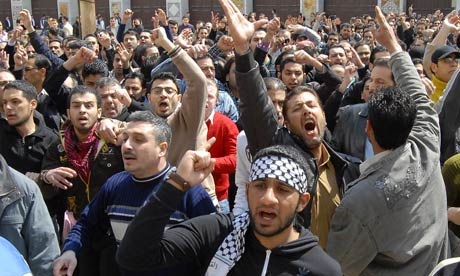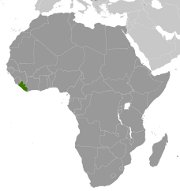Liberia (MNN) ― People remain inside and afraid during post-election tension in Liberia.
Some fear that the situation could even give way to civil war again.
"I think from both parties--the opposition and the government right now--that no one wants it to go back to war," says evangelist Sammy Tippit. "I think that has at least been stated from both groups and both sides. However, emotions can run wild."
If no one wants to go to war, though, what's the big issue, you may ask?
The recent run-off elections, which dubbed Ellen Johnson-Sirleaf the nation's president for a second term, have been highly criticized by opposition party the Congress for Democratic Change (CDC) and its candidate, Winston Tubman.
Tubman and the CDC were miffed after the initial election, in which no candidate was decided upon, but in which Tubman and Johnson-Sirleaf were instead chosen as run-off candidates. Even though the international community generally agreed the first election was fair, Tubman claimed Johnson-Sirleaf committed fraud. To make his point, Tubman called for a boycott of the run-off.
The boycott was stunningly effective. Some stayed home out of fear due to violence surrounding the election days, but others stood firmly planted away from the polls in solidarity with Tubman.
According to Reuters, the turnout could have been as low as 25-35%--less than half the 71% record in the first round. Nonetheless, a clear winner was determined, as Johnson-Sirleaf earned 90.8% of the run-off vote, according to All Africa.
Now Tubman and many others are saying the win is invalid due to the boycott, and since Tubman believes Johnson-Sirleaf shouldn't have been in the run-off to begin with, he may seek an annulment of the run-off results.
Reuters reports that there had been some discussion of power-sharing, but that Tubman went on to call a power-share "unlikely, if not impossible" after police allegedly attempted to kill him.
The tension is thick, and people are desperately afraid. Liberia is still fairly fresh out of war, and the scars of those days remain imprinted on their minds.
"There have been a number of groups in there, including [
Sammy Tippit Ministries], who are there really trying to help rebuild the country, and it's been going very well," notes Tippit. "However, if war breaks out, it's like everything that's been done would just be destroyed."
Ministry is on hold while people stay tucked away in their houses. STM has ministry in Liberia through schools, healthcare programs, economic assistance and well drilling, but while everyone's afraid to leave home, these programs cannot continue. Which means the Gospel cannot spread as it typically would through those programs.
At this point, Liberian believers are just desperate for prayer, says Tippit. "There have been things taking place. And if they escalate into another war, it could be absolutely devastating to the country. And so Christians there have said, ‘Please pray for peace.'"
Pray that the election disputes would be handled smoothly, and that the nation would not return to war. Pray that believers in the meantime would take heart and share God's peace with their neighbors.





